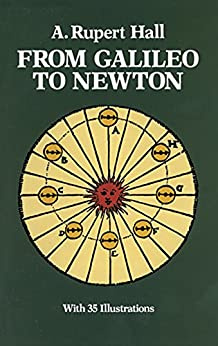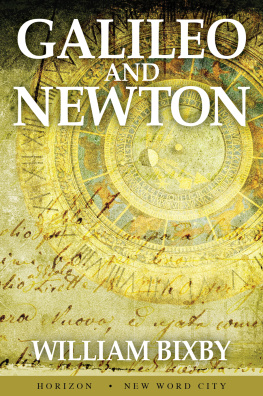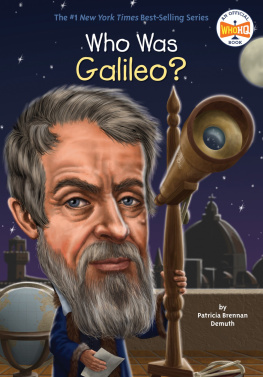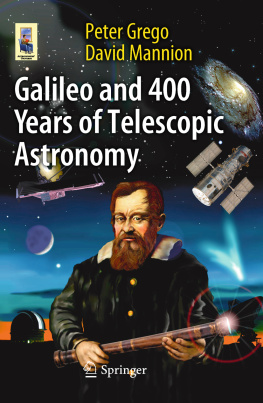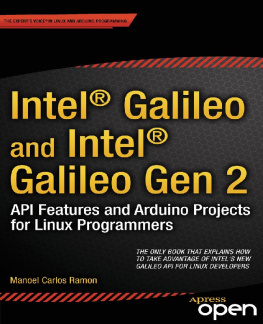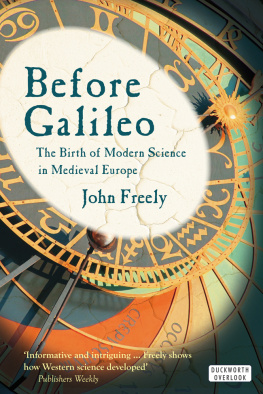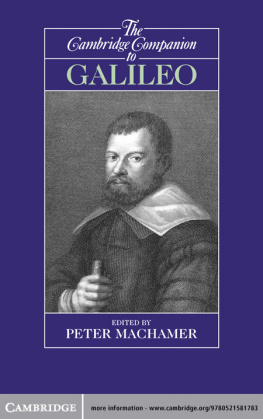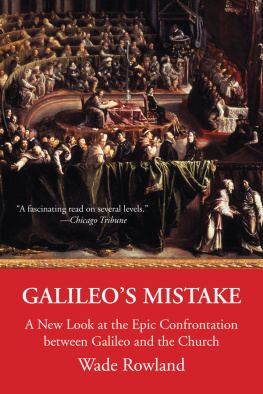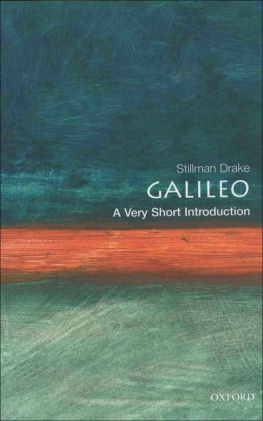A. Rupert Hall - From Galileo to Newton
Here you can read online A. Rupert Hall - From Galileo to Newton full text of the book (entire story) in english for free. Download pdf and epub, get meaning, cover and reviews about this ebook. year: 2012, publisher: Courier Corporation, genre: Religion. Description of the work, (preface) as well as reviews are available. Best literature library LitArk.com created for fans of good reading and offers a wide selection of genres:
Romance novel
Science fiction
Adventure
Detective
Science
History
Home and family
Prose
Art
Politics
Computer
Non-fiction
Religion
Business
Children
Humor
Choose a favorite category and find really read worthwhile books. Enjoy immersion in the world of imagination, feel the emotions of the characters or learn something new for yourself, make an fascinating discovery.
- Book:From Galileo to Newton
- Author:
- Publisher:Courier Corporation
- Genre:
- Year:2012
- Rating:3 / 5
- Favourites:Add to favourites
- Your mark:
- 60
- 1
- 2
- 3
- 4
- 5
From Galileo to Newton: summary, description and annotation
We offer to read an annotation, description, summary or preface (depends on what the author of the book "From Galileo to Newton" wrote himself). If you haven't found the necessary information about the book — write in the comments, we will try to find it.
From Galileo to Newton — read online for free the complete book (whole text) full work
Below is the text of the book, divided by pages. System saving the place of the last page read, allows you to conveniently read the book "From Galileo to Newton" online for free, without having to search again every time where you left off. Put a bookmark, and you can go to the page where you finished reading at any time.
Font size:
Interval:
Bookmark:
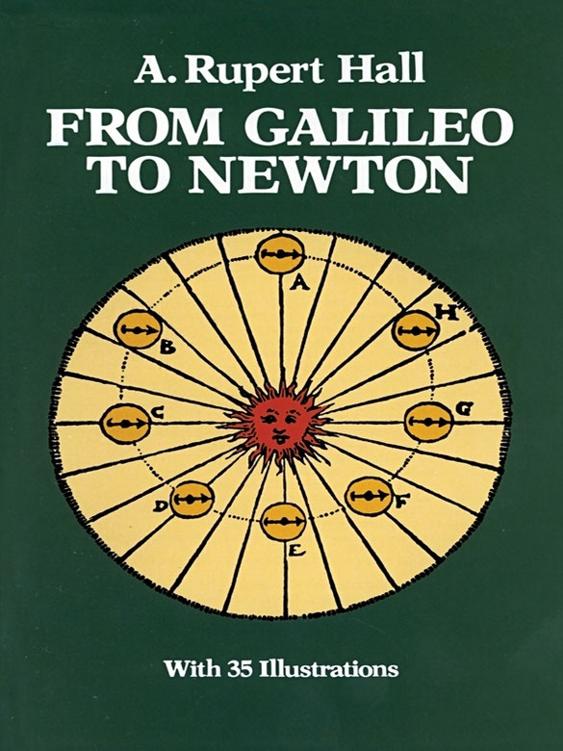
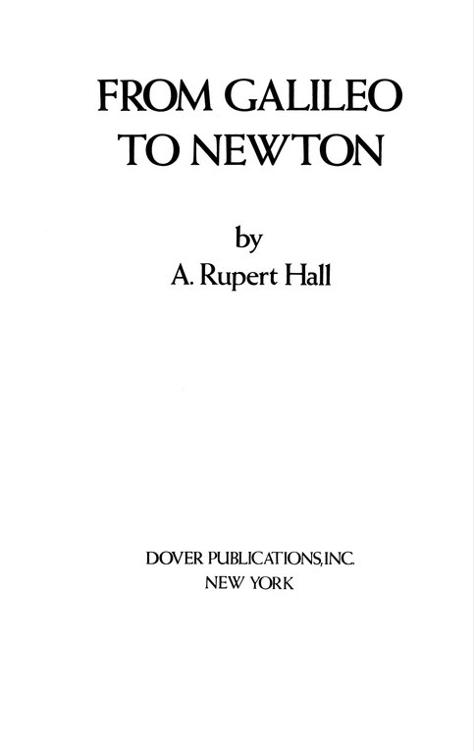
Copyright 1981 by A. Rupert Hall.
Copyright 1963 by A. Rupert Hall.
All rights reserved.
This Dover edition, first published in 1981, is an unabridged and corrected republication of the work published in 1963 by Harper & Row, N.Y., under the title From Galileo to Newton 16301720, as Volume III in the series The Rise of Modern Science (original publisher: Collins, London, 1963). A new Preface has been prepared by the author especially for this edition. The original endpaper illustrations have been omitted.
9780486150253
Library of Congress Catalog Card Number: 81-67038
Manufactured in the United States by Courier Corporation
24227707
www.doverpublications.com
For Alison
I have seized the opportunity in this reprint to correct a few errors made evident by work done since this book was first published. Otherwise I have left the original text unaltered because it has stood the test of time. If I were rewriting this book, I would alter a few emphases and smooth some harsh expressions, but I think it best that it should retain its original character and the influence of that great historian of science, Alexandre Koyr.
A. RUPERT HALL
The endeavour to understand events in nature is as old as civilisation. In each of its three great seminal areasthe Chinese, the Indian and the West Asian-Europeanmen tried to find a logic in the mysterious and an order in the chaotic. They made many attempts, sometimes revealing strange similarities in these totally different societies, to express general truths from which particular events would follow as rational, comprehensible consequences. They tried to describe and analyse in order to understand, for men could not live in the world without seeking to assign causes to the things that happen in it.
One of these attempts to describe and analyse nature achieved remarkable fruition in Europe. Modern science is not merely European; even before it had entered upon its triumphant age its establishment in North America and China had begun, and the origins of the intellectual tradition from which it sprang must be sought in Egypt and Western Asia. But the revolution in ideas which made modern scientific achievements possible occurred in Europe, and there alone, creating an intellectual instrument so universal and so powerful that it has by now entirely displaced the native scientific traditions of non-European societies.
The early stages of this Scientific Revolution began with the fifteenth century. The present book is concerned with its central, decisive stages. The Scientific Revolution was the effect of a unique series of innovations in scientific ideas and methods; it gave the key to the understanding of the structure and relations of things. It was (and still remains) the greatest intellectual achievement of man since the first stirrings of abstract thought, in that it opened the whole physical universeand ultimately human nature and behaviourto cumulative exploration. Of its practical and moral implications we only now begin to have an inkling. For this colossal accomplishment Europe owed much to the Oriental world of which it then knew little. The vehicles of modern science, paper and printing, derived from China; the language of science is still expressed in numerals devised in India; Europe drew likewise on the East for its first knowledge of some phenomena (such as those of the magnetic compass), of some substances (such as saltpetre), and of some industrial techniques that relate to experimental science. But Europe did not borrow scientific ideas from the East, and in any case the borrowings had ceased before the rise of modern science began.
For this reason this volume will make only incidental allusion to science outside the Europeanised world. Europe took nothing from the East without which modern science could not have been created; on the other hand, what it borrowed was valuable only because it was incorporated in the European intellectual tradition. And this, of course, was founded in Greece. The Greek philosophers, imposing no bounds on intelligence but those of the universe itself, set at the very root of the European tradition of science the ideal of an interlocking system of ideas sufficient to explain all the variety of nature. They were above all theoretical scientists, but at the same time they discussed critically the relationship between theories and the actual perception of events in nature. They began both observational biology and mathematical physics. Through most of two thousand years Europe continued to see nature through Greek eyes. Although the Scientific Revolution ultimately came as a reaction against the dogmatism inherent in the emulation of antiquity, it too drew its inspiration in part from neglected aspects of the Greek legacy. As Galileo admired Archimedes no less than Harvey did Aristotle, so the mechanical philosophy that flourished in the seventeenth century looked back to Epicuros and Lucretius. The Scientific Revolution did not reject Greek science; it transformed it.
In a history of modern science it is unnecessary to describe the slow and devious process by which, after the fall of the Roman Empire, Greek science (with some accretions) was partially recovered and assimilated in Europe. The fresh exploration of Greek sources had a powerful effect on the fifteenth and sixteenth centuries, when medieval science seemed to have become sterile, although more justice must be done than the Renaissance allowed to the permanent merits of medieval scientific thought, especially in the study of motion. It possessed, as we can see, a certain richness which medieval philosophers themselves scarcely knew how to employ, but which gained its true expression in the hands of Galileo and his contemporaries.
How this came about is a principal theme of the present volume, From Galileo to Newton. Mathematics, for Galileo, was the essential key to the science of motion without which nature could not be properly understood: with its aid he showed that the Copernican system was plausible. Newton by the same means proved that systems truth. Further, this new outlook upon nature was enriched and confirmed by zealous attention to observation and experiment in astronomy, chemistry, natural history, physics and physiology. While the visible picture of the world was transformed, new mathematical theories reorganised some of these sciences and all were penetrated by the mechanistic concept. The resultant Newtonian universe was orderly, material, and conformable to itself. Small wonder, therefore, that science helped to usher in an age of reason from which superstition was to be banished, and in which enlightened men should enjoy all the fruits of their recently acquired wisdom and power.
A. RUPERT HALL
This volume traces the changes in the spirit and ideas of science that took place between the publication in 1632 of Galileos Dialogues on the two Chief Systems of the World and that of the final edition of Newtons Mathematical Principles of Natural Philosophy in 1726. It is not by any means a full record of the accomplishment of the crucial stage of the scientific revolution, but rather an attempt to characterise its nature. If it is largely concerned with the physical and mathematical sciences this is because the most profound changes of thought are found in them, and because they raised the major questions about rational understanding of the universe. At the same time I have tried to do justice, more briefly, to the intellectual content of the descriptive sciences which had not yet reached the same level of organisation, nor gained the same power of explanation, as the physical sciences. We should certainly not forget that the seventeenth-century mind was enlarged by a vastly wider, as well as deeper, acquaintance with Nature.
Font size:
Interval:
Bookmark:
Similar books «From Galileo to Newton»
Look at similar books to From Galileo to Newton. We have selected literature similar in name and meaning in the hope of providing readers with more options to find new, interesting, not yet read works.
Discussion, reviews of the book From Galileo to Newton and just readers' own opinions. Leave your comments, write what you think about the work, its meaning or the main characters. Specify what exactly you liked and what you didn't like, and why you think so.

